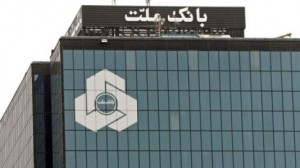 When Tony Blair's government established the U.K. Supreme Court in 2005, we worried that this new institution would become a vehicle for judicial activism. But who would have suspected it would start conducting its own foreign policy?
When Tony Blair's government established the U.K. Supreme Court in 2005, we worried that this new institution would become a vehicle for judicial activism. But who would have suspected it would start conducting its own foreign policy?Last week the nine-member court struck down financial sanctions imposed in 2009 against Mellat Bank of Iran. Until earlier that year, Mellat was wholly owned by the Iranian state, which still retains a 20% direct stake. The U.S. Treasury added Mellat to its sanctions list in 2007 and has long maintained that the bank is a financial conduit for nuclear-weapons programs. Mellat denies the charges.
The U.K. Supremes, however, held that cutting Mellat Bank off from access to the British financial system was "irrational" and "disproportionate." Irrational because Iran's ayatollahs could use other banks, including other Iranian banks, to meet their financing needs; and disproportionate because the U.K. Treasury hadn't proved to the court that Mellat was complicit in financing nuclear proliferation.
In its opinion, the Court cites two main examples of Mellat's involvement with Iran's nuclear program but waves them off on grounds that the bank says it ended those relationships years ago. It also held a closed-door hearing to examine evidence that the U.K. government didn't want revealed to the public or the defendant, but the Court concluded that this secret evidence added nothing important to the case.
The Court's majority opinion includes all the expected niceties about not conducting foreign policy from the bench, before proceeding to do exactly that. Now a bank that the U.S., EU and U.K. have all designated as a financier of Iran's nuclear ambitions has not only been let off the sanctions hook, but the bank promptly threatened to sue the Treasury for as much as �500 million ($774 million) for the damage done to it by the sanctions order.
The Supreme Court isn't alone in conducting foreign policy from the bench. Earlier this year, the EU's General Court also found in favor of Mellat and another sanctioned Iranian bank, Bank Saderat. A long line of sanctioned Iranian firms is forming to challenge their designations in the EU, and many of those who prevail may also seek damages afterward. Thus the agents of an undemocratic and repressive regime advance their nuclear ambitions by abusing the institutions of a free society.
By The Wall Street Journal
The Iran Project is not responsible for the content of quoted articles.










